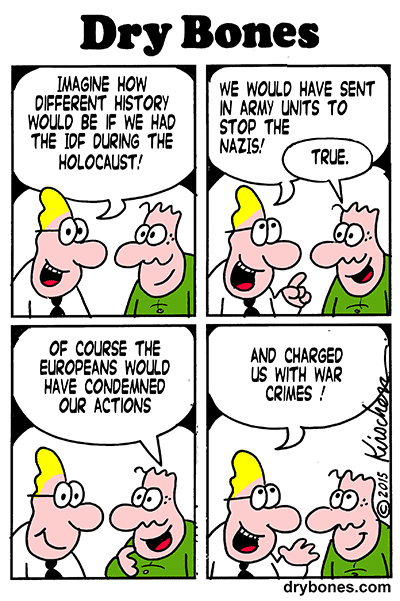Second person dies of injuries days after Jerusalem bombing attack
A victim of this week’s terror bombing in Jerusalem succumbed to his injuries on Saturday, raising the death toll from the attack to two.
Tadese Tashume Ben Ma’ada was critically injured in an explosion Wednesday morning at a bus stop at the main entrance to Jerusalem, one of two bombings that rattled the capital.
A statement from Shaare Zedek Medical Center in Jerusalem said trauma and ICU teams “fought for his life but unfortunately his injuries were too serious.”
“We offer our deepest condolences to the family,” the hospital added.
Ben Ma’ada’s family said they were thankful for the support they’d received since the attack but asked the public and the media to respect their privacy.
Ben Ma’ada, 50, immigrated to Israel from Ethiopia 21 years ago. He leaves behind a wife and six children.
Responding to the reports of Ben Ma’ada’s death, Prime Minister-designate Benjamin Netanyahu sent his condolences to the family and praised medical teams who had treated him.
“Last week, I visited his dedicated family, who wrapped him with love, and the doctors who bravely fought for his life. I embrace the family at this difficult hour. May he rest in peace,” Netanyahu said on Twitter.
Outgoing prime minister Yair Lapid said he was “heartbroken” to hear of Ben Ma’ada’s death.
The double attack in Jerusalem initially left one person dead and 22 others injured. The first victim was named as 16-year-old Aryeh Schupak, a yeshiva student from Jerusalem’s Har Nof neighborhood, and a dual Israeli-Canadian national.
How do human rights orgs operate in the West Bank?
All the material that journalist Zvi Yehezkeli gathered for the documentary series Double Agent(Shtula in Hebrew), which just began airing on Channel 13, sat in his desk drawer for three years, until it was approved for broadcast.Why German intellectuals link Nakba and Holocaust
“I’d gathered 3,000 hours of footage and recorded numerous interviews for which we needed legal approval in order to use them,” Yehezkeli explains. “This type of content involves a great number of individuals, and so the risk of being saddled with international lawsuits is huge. The whole process was absolutely insane. I’d never worked on such a long series before,” he says.
The series Yehezkeli created is being broadcast on TV as the security situation in the West Bank is worsening, just after the controversial gas agreement with Lebanon was signed and while protests over the wearing of the hijab in Iran are escalating.
“If you’ve spent any time with regular people who live in Iran, you’ll see that the story is different from what you hear about the Middle East,” says Yehezkeli, the Arab Affairs correspondent at Channel 13.
“They want to be like us – they admire us. They don’t care at all about Khamenei and all the complicated politics. This is a generation that grew up after the Islamic Revolution, and they want freedom. They want to be able to make money.
“The intensity of this wave of protests has shown us how stressed out Iranians feel, and that Iran is like a powder keg that is going to explode at any moment.”
The Double Agent series follows a pro-Palestinian Swedish woman who arrives in Israel as a tourist to study architecture. One day she meets a man from the settlement town Eli, who explains the Israeli angle of the Israeli-Palestinian conflict to her.
“Slowly, she integrates herself into a human rights organization in the West Bank and becomes an intelligence agent for the Israelis,” Yehezkeli explains.
“After a year, she goes to a meeting with senior Hamas leaders, who reveal details to her about their fundraising apparatus, and the connection between the Muslim Brotherhood and Hamas headquarters in Europe and the human rights organizations. In other words, the human rights organizations, including BDS, are operated by Hamas personnel.
“This agent ends up uncovering a wealth of intel, including secrets that Hamas operatives told her, some of which are documented in written correspondence.
“So, we started creating a documentary series. It’s extremely complicated, since we used a lot of hidden cameras, and we also need to make sure that our agent remains safe.”
It’s not just a shocking exception. This summer, the German Documenta, one of the world’s most important art shows – also publicly funded – was run by an Indonesian curators’ collective that included BDS supporters and presented at least one blatantly antisemitic artwork. Despite ongoing attempts to help them make it right, its organizers proved incapable of issuing a clear apology, taking responsibility, and engaging in a productive debate about what had transpired.
The state-funded House of World Cultures in Berlin is now run by a director who wrote this Facebook post: “They will pay a million fold for every drop of blood in GAZA! Palestine shall be free!” and a Palestinian activist, speaking to an applauding audience at a House of World Cultures event this past June, referred to debates about the Holocaust as “Jewish psychodrama.” Again, these are institutions funded by the German state.
Frequently, such events are framed in terms of postcolonial perspectives on the assumption that Israel is a colonial project that has violated an indigenous people’s rights without even questioning whether that assumption applies (it doesn’t, but it’s obviously a topic that needs to be discussed). Yet that still doesn’t really explain the strange urge to mix in Palestinian narratives when the topic is the Holocaust or Holocaust remembrance. What does the German culture of remembrance, or “Erinnerungskultur” – a broad term that refers to the nation’s historical consciousness or, simply put, to those parts of its history that German society deems worthy of remembering and that is widely used to refer to the Third Reich – have to do with the Nakba, one may ask?
Many Germans think that the State of Israel defines itself as the answer to the Holocaust – that the Shoah is basically its raison d’etre. This incorrect and specifically German take on Israel courses daily through the media, statements by public figures, and cultural events. And that very deeply-rooted German view of Israel comes with an underlying sense of guilt and responsibility towards the Palestinians as victimized by Israel’s status as a reparation for Germany’s crimes. The title of the indefinitely postponed Goethe-Institut event suggests this, too, because it includes the Nakba in the German culture of remembrance.
It would be productive and enlightening to launch a discussion about whether the German culture of remembrance has anything to do with the Nakba at all – to start at the root, so to speak, and to shed some light on the assumptions guiding those who think it does. Why do decision-makers in German cultural institutions think it makes sense to discuss the Nakba together with the Holocaust rather than, say, within the obvious historical context of the war that Arab states waged on the Jewish state after it became independent – also a source of pain from an Israeli perspective? Has the German culture of remembrance taken on the tragedy of the Palestinians to relieve its very own heavy load? Hopefully, after all the scandals of these past months and years, these are some of the questions that will be debated at cultural institutions in Germany in the future.
‘Nabka’ ??
— Arsen Ostrovsky (@Ostrov_A) November 26, 2022
Maybe he meant Babka? Everyone loves a good chocolate babka! pic.twitter.com/4tULEoxh17








































